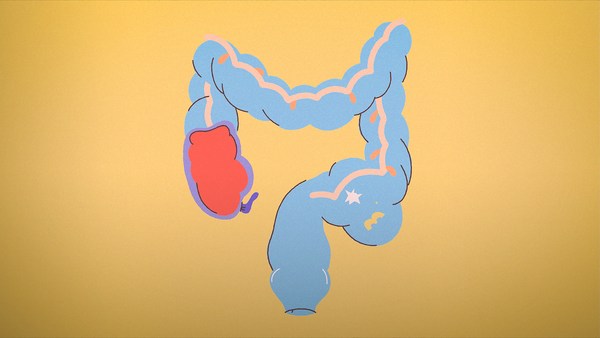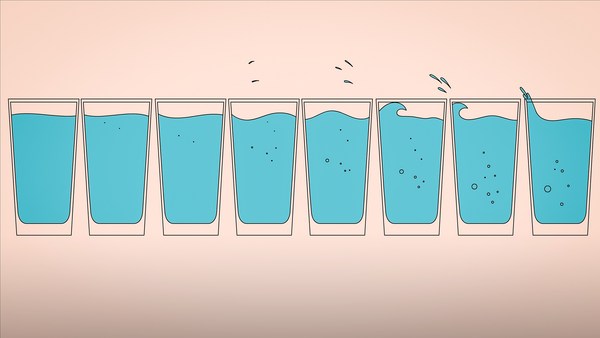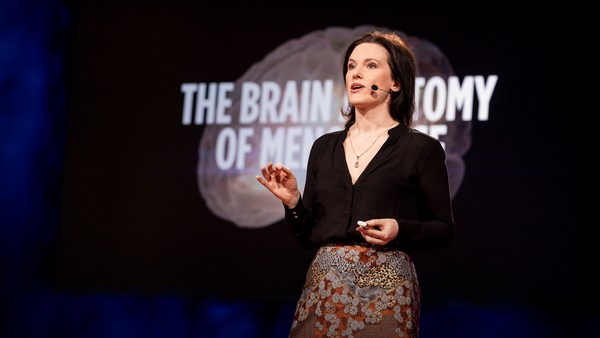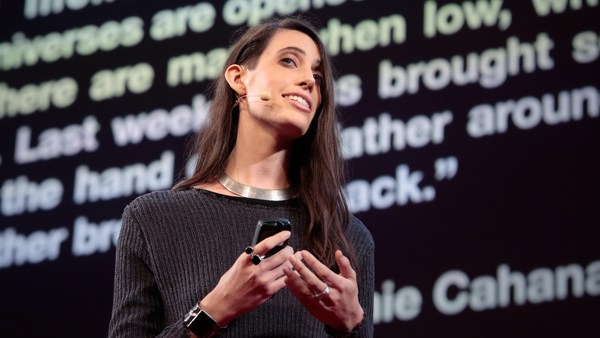There's a lot of mystery and confusion surrounding menopause, so I'm going to take the next few minutes to tell you exactly what's happening in our bodies when we go through it. You can almost think of menopause as puberty in reverse.
[Body Stuff with Dr. Jen Gunter]
Hey, it's your favorite ob-gyn, and I'm here today to talk about a subject that I find truly fascinating: menopause. Chances are you probably don't find it quite as gripping as I do, but I promise that if you can get past the horror stories, you'll be riveted too. Whether you're going through it or know someone who is, you'll recognize there's nothing to fear.
So what exactly is menopause? Technically, "menopause" is diagnosed one year after the final period, but most people use it to refer to the entire span of time when our menstrual cycle is changing in length, a process that lasts several years, and then all the time afterwards. So it's best to think of menopause as a continuum, starting years before, during what is called the menopause transition. Just like puberty, the process happens over many years. The menopause transition is one bookend of our reproductive cycle, opposite puberty.
When we're born, we actually have all the eggs we're ever going to make, about one to two million of them, unmatured and encased in follicles in the ovaries. Around the age of eight to 10, the hypothalamus, a region in your brain, starts releasing a hormone that essentially wakes up those dormant eggs, beginning the monthly cycles of ovulation. This is what increases production of a class of hormones you've probably heard about -- estrogen. Estrogen, along with other hormones, begins a delicate hormonal dance that, once a month, results in the most mature egg leaving its follicle and traveling down a fallopian tube. The body builds up the lining in the uterus, the endometrium, to house the egg, and if the egg isn't fertilized, the lining sheds, and we have our period. This cycle repeats over and over and over, for decades.
On average, sometime in the mid-forties, ovulation starts to get erratic. We just don't have as many eggs, and the ones that remain may not be as healthy anymore. Estrogen can be lower some cycles, and even higher during others. This is the menopause transition -- hormonal chaos, like puberty, only this time, when estrogen levels stabilize, they'll be much lower than they were before. This very normal decrease in estrogen and other hormonal changes does come with medical concerns, such as osteoporosis, heart disease, diabetes and vaginal dryness. Some of us are lucky and we will have no or mild symptoms. Others will experience trouble sleeping, irritability, depression or decreased sex drive. And then there's the most classic symptom, hot flushes. They're a wave of heat that makes it feel like the furnace just got cranked up on the inside. Scientists aren't completely sure why this happens, but the resulting heat makes you feel sweaty and off-kilter. Some women even have symptoms that overlap with anxiety, like nausea and palpitations. But for me, it feels as if I've had too much to drink.
Those are some of the negatives, but there are positives too. After menopause, you don't have to worry about periods or cramps, and people who partner with men who make sperm don't have to be concerned about unintended pregnancy. You're through all that.
To me, menopause is something we go through, like puberty. And like puberty, there's a range of experiences. We continue to make vital contributions to society after menopause. It's not your dotage. Your worth has nothing to do with your ovaries.
So let's say you're in the menopause transition. What are the best things you can do? If you're suffering, there's almost always some kind of help. If you smoke, definitely try to quit. It will reduce your risk of heart disease, it might also reduce some symptoms of menopause. Reducing stress and getting enough sleep is also good. Focus on eating a healthy, balanced diet rich in calcium and vitamin D for healthy bones, and try to get at least 150 minutes of moderate physical activity a week, especially if it's weight-bearing exercises, like hiking, dancing or jogging. If you're losing sleep or having hot flushes, or experiencing other symptoms that affect your quality of life, talk to your doctor. Don't rely on wearable magnets or so-called compounded hormones. These are unproven and have risks. There are a variety of proven options, from cognitive behavioral therapy to FDA-approved estrogen, and some nonhormonal medications that can be very helpful. There are so many permutations and combinations of options that safe therapy can be customized for almost every woman.
One more idea, have a mantra ready. When I get a hot flush, sometimes I tell myself I'm feeling this because women have evolved to drive humanity forward. This is a sign of my strength. And then, I can make it until it goes away.




